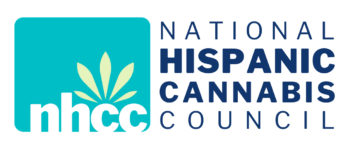Hispanic and Latinx History is American History
Although Hispanics and Latinxs are thought to be the same, they are two distinct groups. Hispanic is a term used for people with a background from a Spanish-speaking country. Latinx is a term that refers to people who come from Latin America. Just like the term “Hispanic”, “Latinx” is a term that does not mean race but ethnicity. Latinx people may be White, Black, Indigenous, or Asian.
The history of Hispanics and Latinx begins in the Americas and what is now the present day U.S. Modern genetics shows that Indigenous people first arrived in the Americas over 15,000 years ago, across what is now the Bering Strait. This group eventually evolved to become Native Americans, Aztecs, Incas, and others.
Hispanics and Latinxs joined the American Revolutionary War, the Spanish-American War, both sides of the Civil War, and both World Wars. In fact, thousands of Latinxs signed up for Teddy Roosevelt’s 1st U.S Volunteer Cavalry or the Rough Riders. Hispanics and Latinxs make up 16% of all active-duty military personnel, according to the Department of Defense, and continue to be a strong force in our nation’s military history.
Hispanic and Latinx people have contributed to more than just the politics of war; they’ve also contributed significantly to American culture – from music to sports to food and beyond. Americans enjoy genres that are typically enjoyed in Hispanic and Latinx communities such as salsa, merengue, trap, and reggaeton. Some of your favorite musicians may even come from these communities like Shakira, Pitbull, J.Lo, Camila Cabello, and Lin-Manuel Miranda. Additionally, Dominicans, Puerto Ricans, and Mexicans have had outstanding participation in the major leagues in baseball, boxing, and golf. You might even sit down with some friends to watch these sports over a couple of margaritas during Taco Tuesday.
Underrepresentation of Hispanics and Latinxs in the Cannabis Industry
Hispanics and Latinxs make up about 18% of the U.S. population. In 2017 alone, they earned more than $1 trillion and paid more than $250 billion in taxes. They continue to fill gaps in labor-short industries such as agriculture, construction, and healthcare. According to the New American Economy, “Hispanic Americans, and particularly Hispanic immigrants, also continue to start and own their own businesses at higher rates than the rest of the population.” Despite this, though, their presence in the cannabis industry is very low. According to the MJBiz Daily Diversity Report, an average of 5.7% nationwide of total cannabis licenses belong to Hispanics or Latinxs. Latinx business owners have also struggled to get loans at the same rates as their white counterparts in the cannabis industry.

So why are Hispanics and Latinxs underrepresented in the legal cannabis industry? Before cannabis became a Schedule I drug, Americans would get medicine that contained cannabis from pharmacies. The Mexican Revolution brought thousands of Mexican immigrants to the U.S., and Mexicans brought their custom of smoking “marihuana” to relax. Despite the fact that Americans were using cannabis as medicine, the practice of smoking “marihuana”, as done so by Mexicans, became stigmatized.
During the Great Depression, the massive job loss and economic downturn resulted in resentment towards new migrants. Yellow journalism, or misinformation that is spread on purpose, was used to stigmatize cannabis by linking it to crime and ethnic minorities. If you have seen Reefer Madness, you know exactly what we are talking about. The Marijuana Tax Act was passed in 1937 after a year of heavy media campaigning against cannabis. Cannabis is now a Schedule I Drug, which classifies it as having no medical value and a high potential for abuse.
To this day, Hispanic, Latinx, and Black people are disproportionately pulled over, arrested, incarcerated, and heavily sentenced. Simple marijuana possession is the most common charge for deportation and can also prevent legal permanent residents from being able to leave and return to the U.S. Despite making up just 17% of the US population, Hispanics represent 50% of federal drug cases. This creates a massive barrier to entry into the cannabis industry, as arrest and conviction may lead to denial of a license or industry employee badge.
How data is collected (or not collected) clouds the issue and contributes to Latinx erasure. The FBI’s Uniform Crime Reports, which provides data on nationwide crime statistics, does not keep data on ethnicity. In addition, the FBI’s 2021 crime statistics do not track changes in marijuana and drug arrest trends. Furthermore, Latinx people’s arrests are documented as White arrests, which hides the true damage done to Latinx communities and individuals’ futures. New York City does track Latinx arrests, and it was found that Latinxs get arrested four times as often as white people.
This overall lack of data, however, hides racial targeting policies that are deeply entrenched in the U.S. In fact, the Latinx community faces many systemic issues due to the War on Drugs and the current federal legal status of cannabis. Latinx people have to deal with racial profiling, anti-immigrant sentiment, violence, government surveillance, deportation, and police brutality.
Stigma Within the Hispanic and Latinx Community
Unfortunately, the criminalization of cannabis is internalized in the Hispanic/Latinx community. Marijuana consumption has long been associated with crime, violence, gangs, drug trafficking, and other negative consequences. This has created generational conflict and perpetuation of harmful attitudes and beliefs. The language barrier may contribute to this problem.
Addressing the Harm of the Drug Wars, Social Equity In the Cannabis Industry, and Culturally-Informed Harm Reduction
Multiple organizations, such as the Drug Policy Alliance (DPA), exist that address the harms created by the war on drugs. They advocate for the release of people incarcerated for marijuana, expungement of drug convictions, and harm reduction. The DPA also played a crucial role in legalizing marijuana and defelonizing drug possession in California.
In addition, more than half of the 37 states and U.S. territories, where some form of the cannabis plant is legal, have incorporated social equity policies. Oakland, CA, offers the Oakland Equity Permitting Program. Economic opportunities in the form of preferential policies for business ownership also exist.

Recently, in addition to equity permit endeavors, President Joe Biden announced pardons for federal convictions for simple marijuana possession. Although, in effect, the pardons don’t do much for individuals that are in federal prison or non-citizens who were not lawfully present in the U.S. at the time of conviction. However, this is the first time the federal government has taken any action for cannabis convictions or rescheduling cannabis and is the tip of the iceberg to redress the effects of past marijuana prohibition, as Maritza Perez, director of federal affairs at the Drug Policy Alliance aptly stated. This small step for cannabis-kind will, hopefully, allow those who have been historically arrested, prosecuted, convicted, and sentenced disproportionately – namely those underrepresented in the cannabis industry – a chance at participating in the canna-biz.
There is still a lot of work ahead in order to give Hispanics and Latinxs a fair voice in the industry. According to Jerrico Perez, attorney at Vicente Sederberg, “Regulators and other stakeholders should be vocal about the need for Hispanics to participate in the industry. We need to provide access to economic benefits, Spanish-speaking educational materials, and outreach and mentorship for Hispanics and other POC to have fair access to opportunities in the legal industry.”
About the National Hispanic Cannabis Council
The National Hispanic Cannabis Council (NHCC) launched in March 2021 with the goal of promoting Hispanic and Latinx participation and leadership in the legal cannabis industry while also addressing their underrepresentation within the industry.
Brian Vicente and Antonio Valdez, who are founding members of the group, recognized this underrepresentation within the industry and decided that Hispanic and Latinx people could benefit from the NHCC’s formation. The NHCC provides webinars, networking events, job training, and mentorship opportunities with leading cannabis experts to help its members overcome barriers to entry and, in a sense, level the playing field.
How the National Hispanic Cannabis Council supports Hispanic businesses
Among the many barriers to participation in the legal cannabis industry, the largest is financing. The NHCC – in addition to its other endeavors – has supported the Capital Lending & Investment for Marijuana Businesses Act, or The CLIMB Act (H.R. 8200), and rallied to encourage other businesses and organizations to write to U.S. senators and share their support. Executive Director Antonio Valdez noted in an email four of the reasons the NHCC supports the CLIMB Act:
- Help small entrepreneurs get into the market, allowing them to borrow money from legitimate lending institutions, not having to go to venture capitalists or other money lenders that charge so much that you really can’t pay back the loan
- “Business Assistance” allows access to knowledge not normally available to minority owners: management consulting work, insurance, advertising, IT, debt or equity capital services, or banking, credit card, and financial services
- Brings everything above board and lets a company invest in itself
- Allows safe harbor to those support businesses as well (the Cannabis Related Businesses)
Additionally, the NHCC is developing a framework that would help build communities around not only economic opportunities but also medical and legal ones as well. In a statement from the group, Mr. Valdez said, “The NHCC also aims to be a leader in bringing health care expertise directly to the Hispanic community to educate consumers and demystify cannabis-related medical and wellness products that have been transformational in the lives of millions of consumers.” Education is critical to the success of Hispanic and Latinx people in this industry, and the NHCC is doing just that. We look forward to seeing how the NHCC helps shape the cannabis industry and continues to support the Hispanic/Latinx community!
Simplifya is now a member of NHCC
Simplifya is proud to announce that we are now a member of the National Hispanic Cannabis Council! We recognize that one of the many barriers to the industry for minorities is access to resources that help them become and stay good actors in the cannabis industry. Compliance can be costly, and non-compliance even more so. Our goal is to support the NHCC in their mission to empower and educate the Hispanic/Latinx community and address the underrepresentation of Hispanics and Latinxs in the cannabis industry.
By Ileana Jiménez, Associate Regulatory Analyst and Elisa Cruz, Technical Writer

